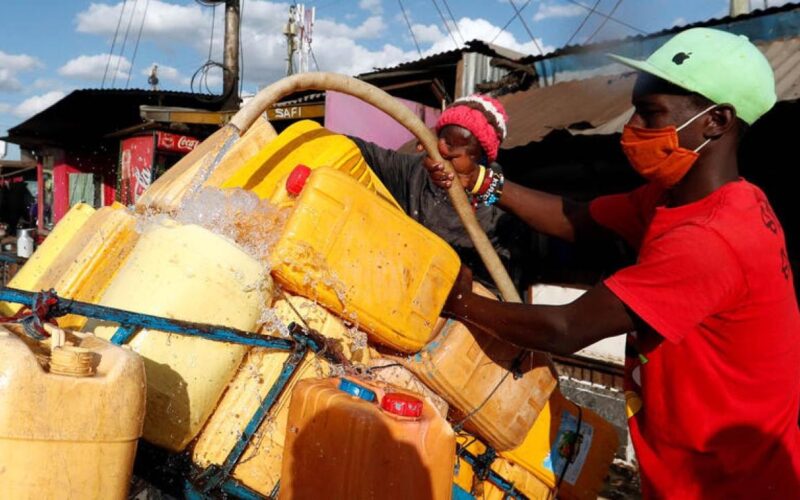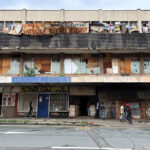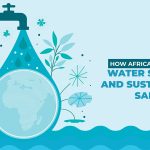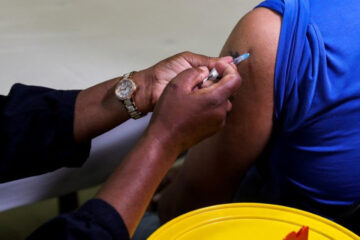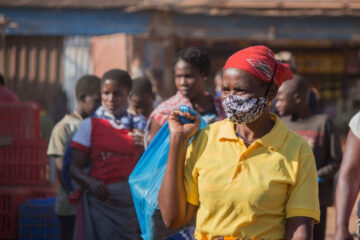NEIL MACLEOD
Recently, as a result of the Covid19 pandemic, there has been a recognition in South Africa of the importance of access to water and sanitation for residents living in informal settlements, together with hygiene education.
However, the solutions adopted have been reactive to date, contradict stated government policy when it comes to both sanitation and water, and are not sustainable.
The water and sanitation solutions currently adopted in South Africa make use of fixed water tanks that are filled by tankers and provide sanitation using communal chemical toilets. Ironically, while bucket toilets provided by the public sector are regarded as an unacceptable sanitation option, these chemical toilets, which are also a container based solution (read bucket system) usually provided by the private sector, are being rolled out at scale. And, while bucket toilets are usually used by only one household, chemical toilets are often shared by as many as 100 households.
Meanwhile, water is being supplied by tanker-trucks and either collected directly by households who usually join crowded queues in the road, or from plastic tanks which see similar crowds when they are filled. These supplies often cost up to twenty times more than water from a piped network and rarely manage to deliver the minimum basic supply of 25 litres per person per day. Worse, the use of water tankers is often tainted by corruption and also acts of vandalism by the entrenched tanker mafia that exist in some informal settlements. Ironically, in many of the communities concerned, there is water supply infrastructure close by. But communities are either not connected or the supplies no longer work.
These problems are not peculiar to South Africa and have been well documented. But there are better solutions.
Container based sanitation is now being recognised internationally as a sustainable solution for communities that are too dense for piped infrastructure to be installed or that are remote from existing infrastructure. Modern approaches to this technology are very different from the old bucket system that we have experienced in South Africa. Container based solutions also facilitate the efficient collection and processing of faecal sludge to recover the valuable nutrients and energy that it contains – the so-called sanitation circular economy. However the chemicals used as a deodorant and disinfectant in chemical toilets make conventional sewage treatment impractical.
The toilet that is used today is little different from the first flush toilets invented in the 1860’s. With the financial support of organisations such as the Bill and Melinda Gates Foundation, Significant advances are being made in the reinvention of the toilet and the development of processing systems to recover nutrients and energy at source from faecal matter. The eThekwini metro and the Pollution Research Group at UKZN have been research and testing partners with the Foundation on this exciting project since 2010.
Key to the success of new approaches is involvement of the people who will use the new systems. Without proper planning or re-planning through a consultative process, with real community participation in decision making and with agreed outcomes that will result in win-win solutions, the implementation of sustainable infrastructure solutions will prove to be virtually impossible. If a water solution is introduced without thought being given to the disposal of the ‘grey’ wash water, public health problems will inevitably result. Chemical toilets only cater for so called ‘black water’ (water contaminated by human excrement) and are not a solution to the disposal of water that has been used for other purposes.
Informal settlements in South Africa are most often unplanned and usually result when individuals or groups of people are able to act more quickly than those responsible for development control. This is unlike cities such as Brasilia where informal settlements are developed through a process that involves communities and municipal leadership working collaboratively to agree on the planning and layout of settlements. This then makes it possible to retain access pathways or even road corridors, along which piped services and other infrastructure can be installed cost effectively and each family is then able to gain access to safe water and sanitation within their homes.
In summary, what is needed to address the provision of water and sanitation services in informal settlements, is the following:
In the short term,
- Keep existing piped water systems working properly, fix them quickly when there are problems and expand them to link to informal settlements. Do not truck water except in emergency situations as a temporary measure
- Where communal sanitation provision is essential, use well designed and constructed facilities and sure that there are arrangements – and funding – to manage them properly.
In the longer term,
- Adopt a creative approach to planning that is proactive and not reactive, with clear benefits to all stakeholders, and that is participative and has real community involvement in decision making
- Use affordable and sustainable infrastructure solutions. Spending millions or even billions of Rand on operating costs could more effectively be geared to fund capital investments.
- Make sure that the level of service selected for the provision of water is complemented by sanitation systems capable of safely disposing of the effluent that results – delivering water into communities by the tanker load, without providing for its safe disposal has resulted in cholera epidemics in the past.
Neil Macleod is a member of the Technical Committee of the Water Institute of Southern Africa (WISA)

